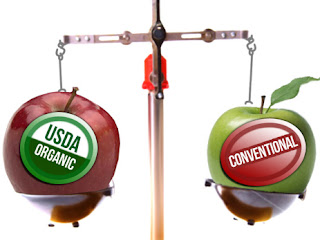The main difference between organic and conventional food products are of course the chemicals involved during production and processing. The conventional food production practices involve the use of a number of chemicals which have a devastating effect on the environment, while the residues of these chemicals in food products have dubious effects on human health. All food products on the market including those that contain residues of pesticides, antibiotics, growth hormones and other types of chemicals that are used during production and processing are said to be safe. There are no reports about people getting ill from eating conventionally grown food, however, it is important to be aware that the effects of these chemicals in the long term remain unknown. What is more, some national health organizations recommend parents to choose organic food products for their children because they are more vulnerable to the effects of pesticides than the adults making one wonder whether the residues of these chemicals in food products are really as harmless as they are claimed to be.

Organic food virtually eliminates the risk of chemical residues but this is not its main advantage over conventional products. Strict avoidance of all chemicals in all stages of production makes organic food much more environmentally friendly because the use of all natural production methods eliminates the risk of soil and underwater contamination, and helps preserve biodiversity and wildlife both of which have been seriously affected by the human actions, primarily urbanization and intensive agriculture. Organic farming also improves animal welfare because organic farms are required to keep their animals in certain environment and provide them access to sunlight and outdoors, for instance. In the end, organic food helps reduce the carbon dioxide emissions and fight the global climate change because it is mostly sold locally.
Organic food may be more expensive than the conventionally produced one but the price alone does not show the whole picture. You may pay less for conventional food but if you take into account the damaging effect of conventional food producing practices on the environment and clean-up costs, organic food is actually less expensive. Yields in some cultures may be slightly lower, however, organic food producers do not have any costs for pesticides, artificial fertilisers and other chemicals, while organic animal farms save their money on veterinary expenses because animals are not raised at high stocking density and are less likely to be affected by diseases.


